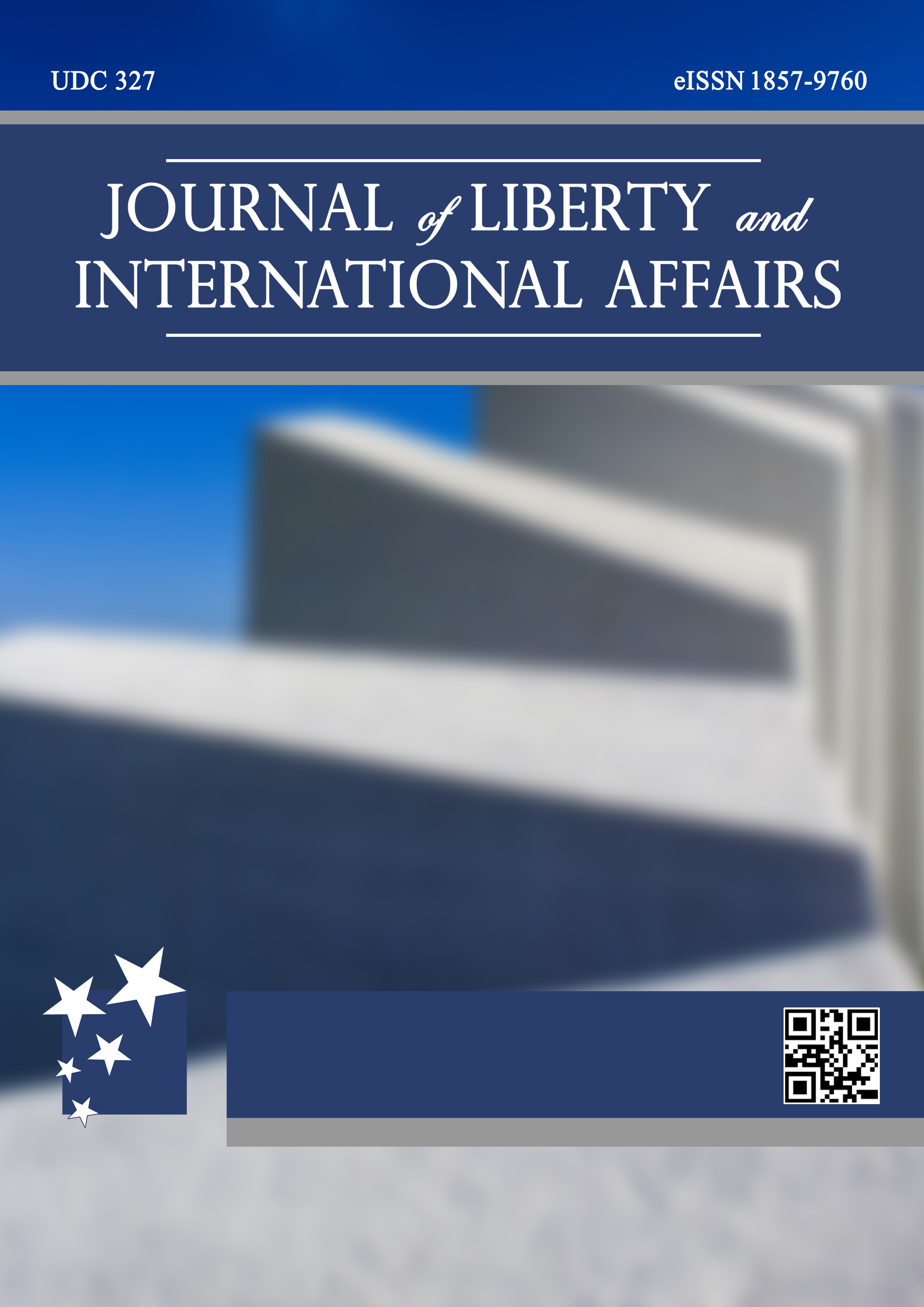DETECTING THE IDEOLOGICAL POSITION OF POLITICAL ISLAM TOWARDS LIBERAL DEMOCRACY IN
MUSLIM COUNTRIES
DETECTING THE IDEOLOGICAL POSITION OF POLITICAL ISLAM TOWARDS LIBERAL DEMOCRACY IN
MUSLIM COUNTRIES
Author(s): Nikola Gjorshoski, Goran IlikSubject(s): Politics / Political Sciences, Politics, Philosophy, Law, Constitution, Jurisprudence, International Law, Human Rights and Humanitarian Law, Philosophical Traditions, Ethics / Practical Philosophy, Political Philosophy, Political Theory, Political Sciences, Governance, Theology and Religion, Islam studies, Comparative Studies of Religion, International relations/trade, Politics and law, Politics and religion, Politics and society, History and theory of political science, Comparative politics, History of Islam, Contemporary Islamic Thought, Inter-Ethnic Relations, Penal Policy, Sociology of Religion, Politics of History/Memory, Politics and Identity, Peace and Conflict Studies, Sharia Law
Published by: Institute for Research and European Studies - Bitola
Keywords: Political Islam; Liberal Democracy; Sharia; Rule of Law; Separation of Powers; Secularism
Summary/Abstract: The question of the correlation between Islam, political Islam and liberal democracy has so far been the most exposed topic in exploring the democratic capacity of political Islam and Islamic societies in general. What is particularly intriguing about the relationship between political Islam and liberal democracy is the fact of its westernized triviality that has received a pejorative tone in Islamic political circles. Simplified, the triviality of liberal democracy for the Islamic political campus implies imposing a model of democracy that cannot be fully compatible with the original Muslim notion of society and government. Hence, the following paper analyzes exactly the relations of political Islam to specific inherent categories of liberal democracy such as the rule of law, representative government, the separation of powers and secularism as diferenta specifica of liberal western democratic discourse. Through the methods of induction and deduction, the author will illustrate how appropriate tangent or divergence is illustrated and how this is reflected in the general ideological positioning of political Islam towards liberal democracy in Muslim countries through an axiological and praxeological perspective.
Journal: Journal of Liberty and International Affairs
- Issue Year: V/2020
- Issue No: 03
- Page Range: 102-115
- Page Count: 14
- Language: English

